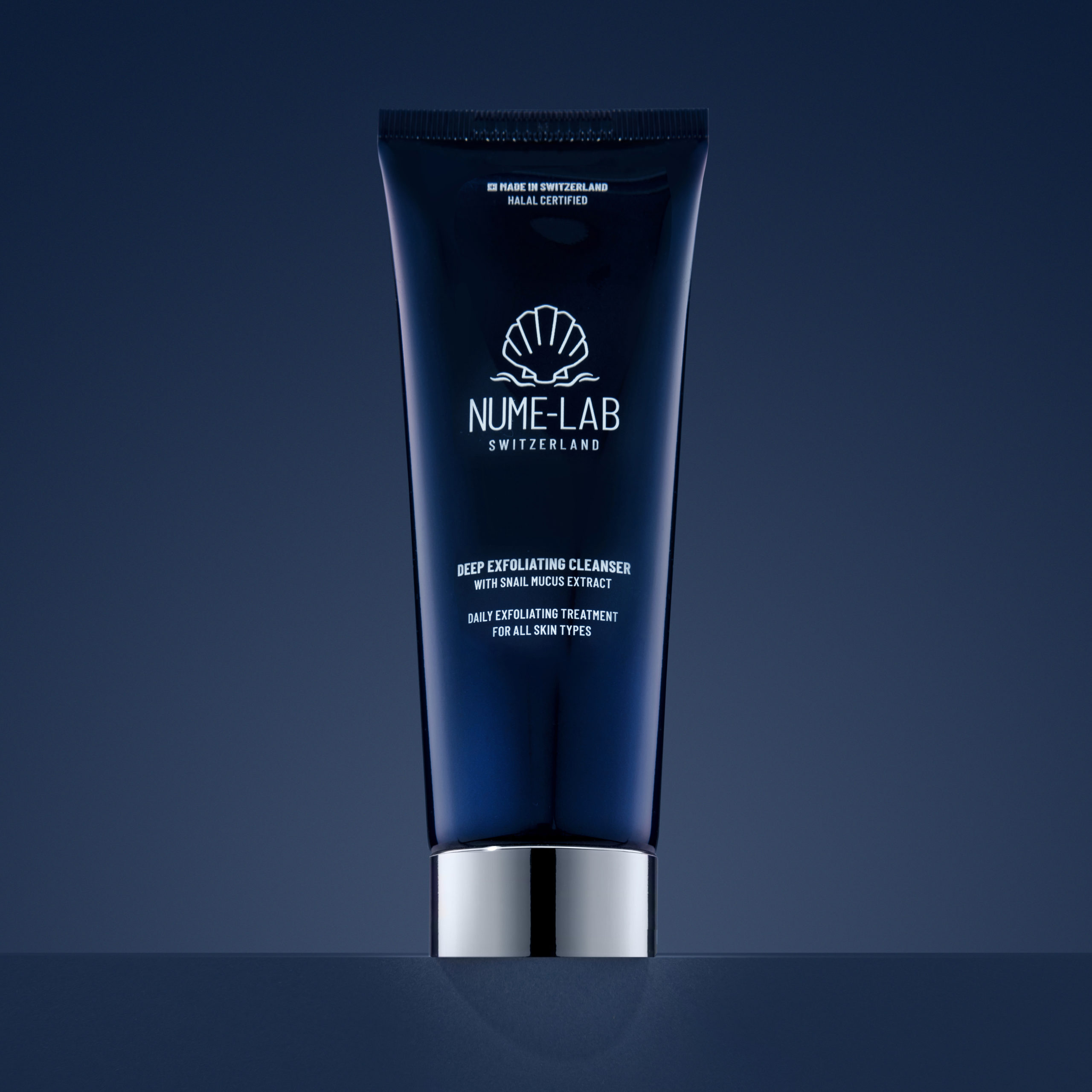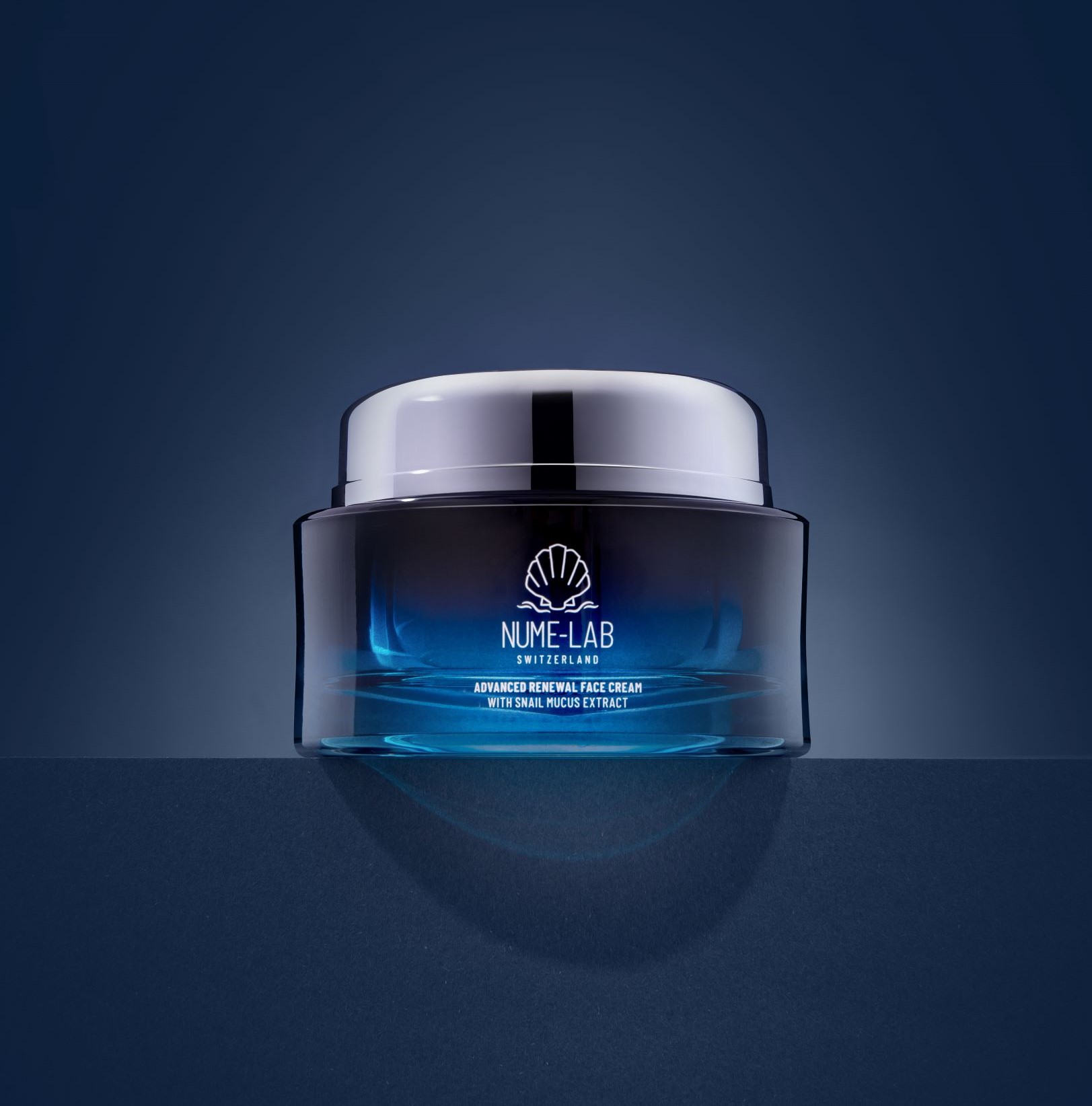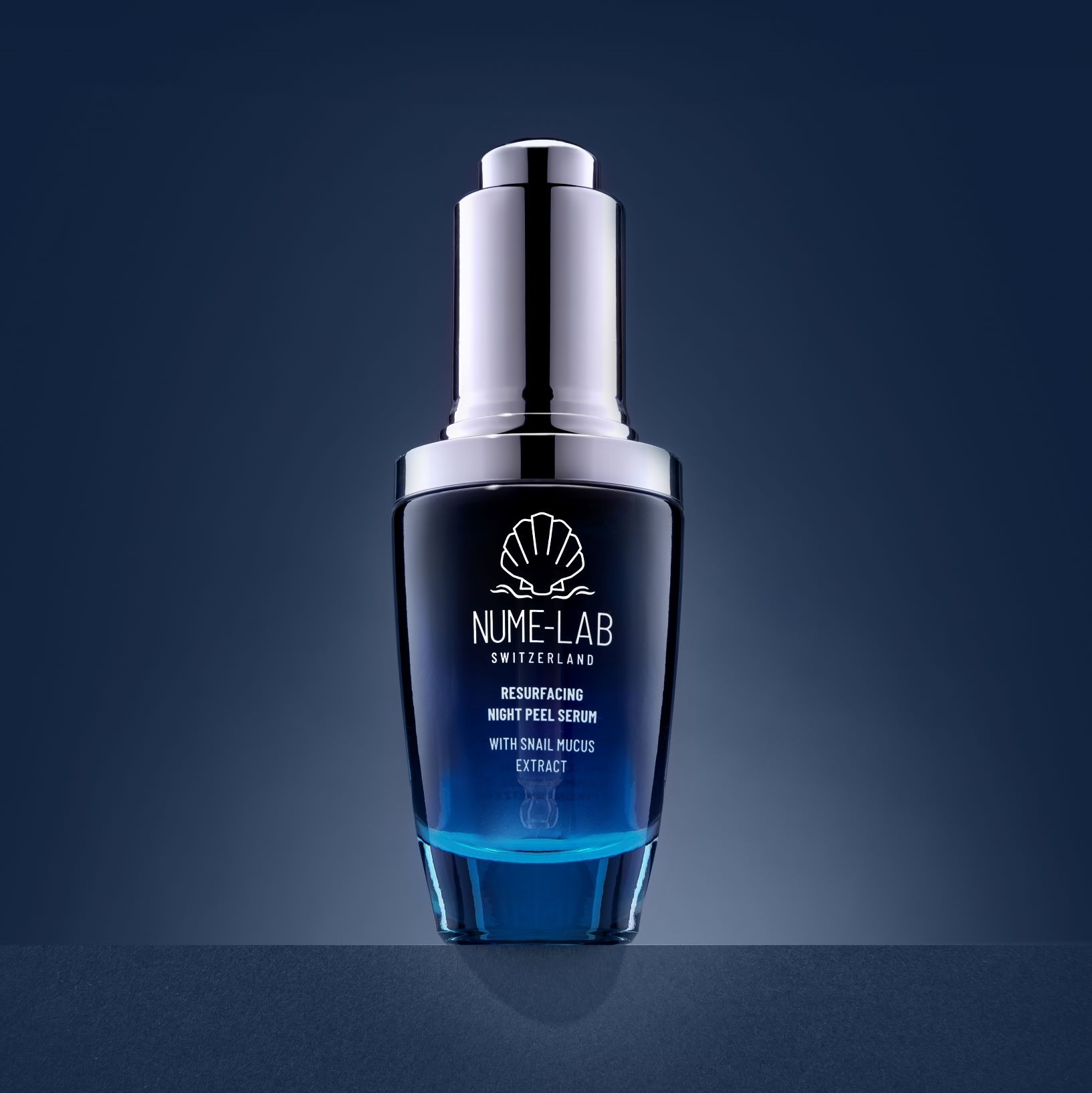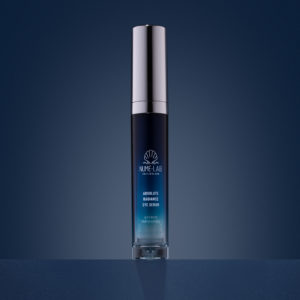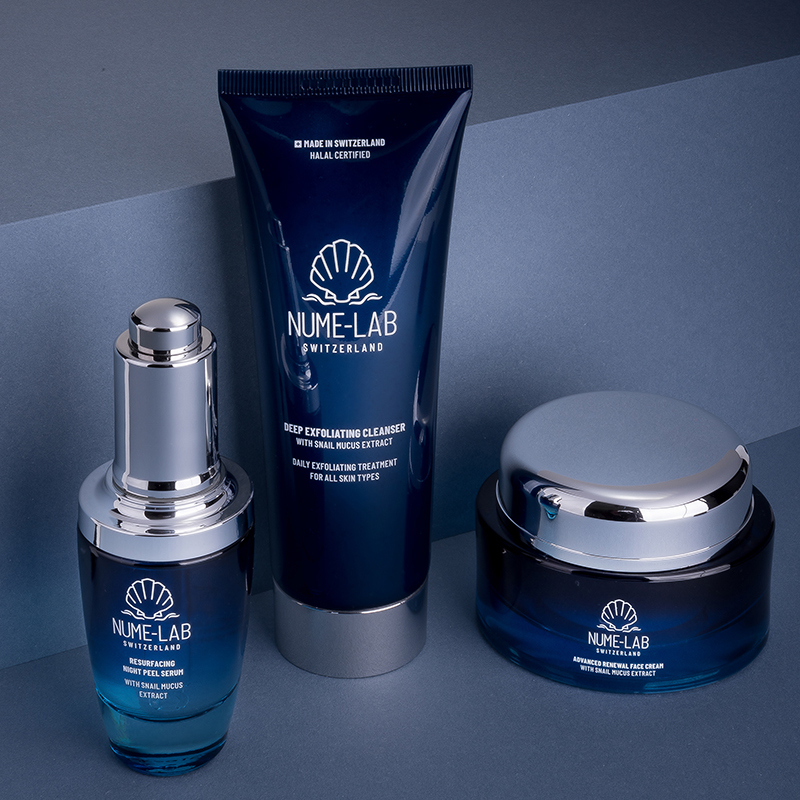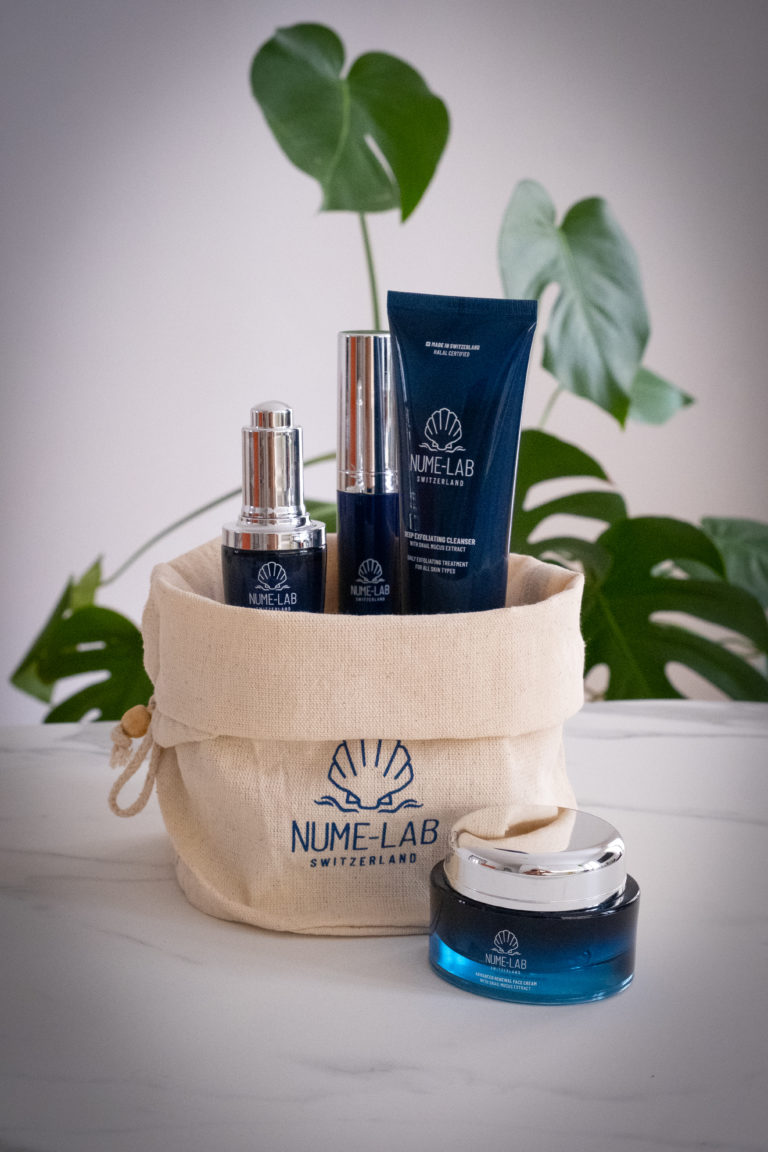Vitamin A in Skincare: How Can Retinoids Help Your Skin?
You probably have skincare products containing retinol in your cabinet right now. Surprise, surprise, this means you’re already using vitamin A! Known for its over-the-counter name of retinol or retinoids, vitamin A can be a solid addition to any clean beauty skincare routine like it is for NUME-Lab Switzerland.
This skincare active consists of retinoids (active vitamin A or preformed) – typically used for their skin benefits; and carotenoids (pro-formed vitamin A) like beta-carotene. In skincare, retinoids can be animal-derived or made in a lab and cruelty-free like our NUME-Lab Switzerland Swiss biotech method.
Let’s jump right in and see what this skincare ingredient can do for your skin.
Table of Contents
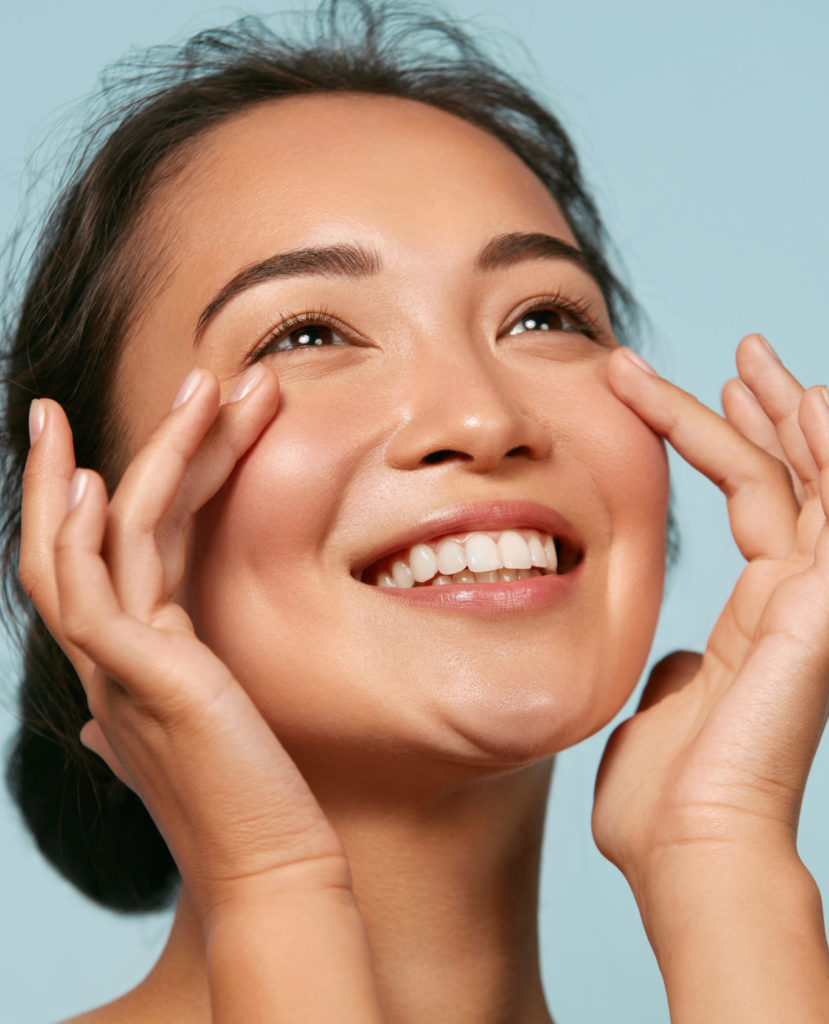
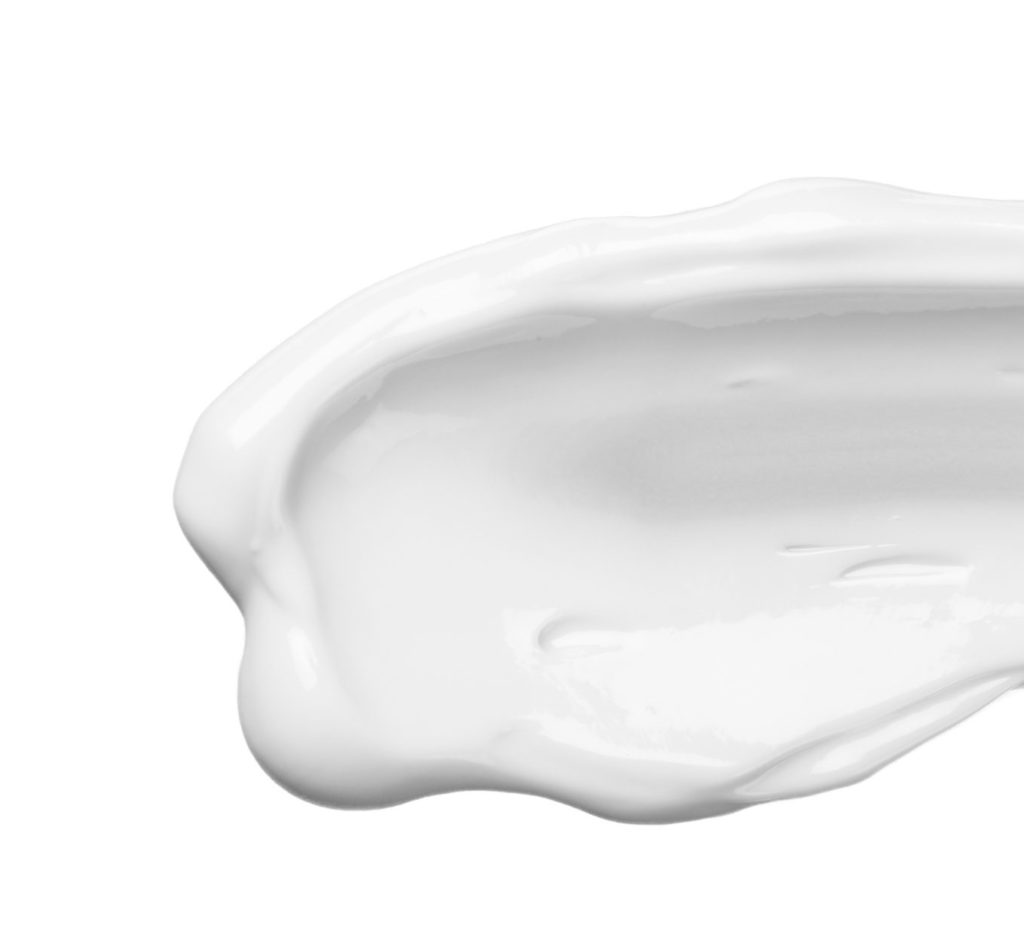
What Is Vitamin A?
This skincare ingredient is a group of three types of retinoids:
- Retinoic Acid
- Retinal (Retinaldehyde)
- Retinol
Strength-wise, retinoic acid is the strongest, then comes retinal, and finally retinol – what we typically see in most OTC (over-the-counter) skincare products.
It has tons of skincare benefits like anti-inflammatory, stimulating cell turnover, boosting collagen production, improving acne-prone skin, fading dark spots, and more.
The Science Behind Vitamin A
It is a fat-soluble compound that benefits our immunity, reproductive health, eyesight, and of course – skin. Retinoids are the most commonly used form of vitamin A for skin. A good moisturizer containing retinoids can speed up your skin cell turnover and boost collagen and elastin, contributing to its anti-aging properties and ability to fade dark spots. Additionally, being an anti-inflammatory, it can help acne-prone skin heal faster.
Benefits of Vitamin A
Skin care with vitamin A or retinoids is a well-known practice worldwide. Retinoids have tons of skincare benefits:
Stimulates skin cell turnover
Boosting skin cell regeneration and helping you get rid of dead skin cells faster is perhaps the most well-known benefit of retinoids. With this, it contributes to a smoother complexion and more radiant skin.
Fades hyperpigmentation and dark spots
By inhibiting the production of tyrosinase (a melanin-controlling enzyme), it can help fade your age spots and give you an even complexion. Plus, the fact that this skincare active helps your skin get rid of dead skin cells faster makes it that much easier to shed off your upper skin layer and expose a new, brighter, and smoother skin underneath.
Normalizes sebum production
By decreasing oil production in your sebaceous glands, it can help you unclog your pores and reduce blackheads, whiteheads, and eventually acne. Clogged hair follicles due to excess sebum are the number one cause of acne. That’s why vitamin A can be a great solution to acne-prone skin.
Anti-inflammatory properties
The anti-inflammatory properties of vitamin A as a supplement give it its superb cancer-fighting properties. In skincare, vitamin A also has anti-inflammatory functions and helps with skin disorders like acne vulgaris. Research shows that vitamin A deficiencies result in a higher susceptibility to inflammatory diseases.
Boosts collagen and elastin production
Vitamin A boosts the job of fibroblasts – the skin cells that produce collagen in our skin. It effectively stimulates collagen and elastin production, resulting in the reduction of fine lines and wrinkles and more youthful-looking skin.
Anti-aging properties
Increased skin cell turnover plus boosted collagen result in some of the most extraordinary anti-aging properties! This active is one of the rare skincare ingredients that works not only on the upper skin layer (epidermis) but also on the dermis – the deeper layer.
Antioxidative skin protection
As if all these benefits above weren’t enough, it also has the antioxidative power to protect your skin from UV rays, pollutants, or other free radicals. These protective properties of retinoids only make them more desirable in the skincare industry.
Vitamin A Side Effects
Although it is generally safe when used in its retinol form in OTC skincare products, more potent formulations might cause side effects like:
- Irritation
- Dryness
- Peeling
- Photosensitivity
It’s worth noting that your skin might need some time to adjust to using it. The process of skin getting used to the retinoids is known as retinization. So, gradual increasing of the dosage or application times is vital here.
Additionally, we recommend using a strong UV protection of SPF50 when applying vitamin A since it causes photosensitivity. Or, apply it at night time.
Who Can Use Vitamin A?
With its benefits in mind, this ingredient will show the best effects on:
Acne-prone skin (but careful if your skin is dry or sensitive, as it can worsen the problem)
How to Use Vitamin A?
It should be introduced to your skincare routine gradually to give your skin time to adjust without any irritation. So, if it’s a more potent product, start by applying it twice a week, and increase gradually. When it comes to retinoids, we usually recommend starting with creams and moisturizers, as they’re gentler to the skin than serums, for example.
A moisturizer containing vitamin A or face cream with vitamin A and E are great skincare options. We recommend sticking to Halal and clean beauty skincare ingredients that will complement this active for the best results.
For example, you can combine vitamin A with many nourishing and moisturizing ingredients like snail mucin extract, hyaluronic acid, vitamin E, vitamin C, niacinamide, etc.
Avoid products with parabens, sulfates, phthalates, mineral oils, formaldehyde, DEA, TEA, MEA, etc. They’re toxic to your skin and the environment! Instead, turn to clean beauty cosmetics brands that are sustainable and natural.
Vitamin A KEY FACTS
| INGREDIENT | Vitamin A |
| INGREDIENT TYPE | Retinoid |
| MAIN BENEFITS | boosting skin cell turnover, anti-aging, anti-acne, fading dark spots, stimulates collagen production, normalizes sebum production, anti-inflammatory, antioxidative |
| WHO CAN USE IT | aging skin, acne-prone skin, skin with hyperpigmentation, oily skin |
| HOW TO USE | at night (causes photosensitivity), use gradually to slowly adjust to it, in the form of a natural and clean face moisturizer with vitamin A |
| NOT RECOMMENDED FOR | sensitive skin, dry skin |
| COMBINE WITH | soothing and hydrating ingredients like snail mucin extract, hyaluronic acid, vitamin E, niacinamide, etc. |
| DON’T MIX WITH | AHAs or BHAs (they work well with vitamin A and even increase its efficacy, but can cause irritation and reactions in sensitive skin), benzoyl peroxide |
Find Vitamin A in the Advanced Renewal Face Cream!
Save now by shopping our Skincare Bundles
HEY! watch our stories about Vitamin A in Clean Beauty Skincare
Lorem ipsum dolor sit amet, consectetur adipiscing elit. Ut elit tellus, luctus nec ullamcorper mattis, pulvinar dapibus leo.



